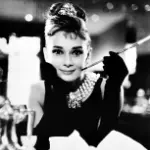In the previous article Spotting Narcissists: Lessons from Classic Movies (Part 1), we talked about how the personality of a narcissist can affect those around them and analyzed the characters Amy and Nick from the movie Gone Girl. We looked at their behavior patterns and psychological activities, as well as how their narcissistic traits prevented them from properly addressing the problems in their marriages. This led to a life of suffocation and a marriage that existed in name only.
In this article, we're going to continue exploring how narcissistic traits can drive people to madness. We'll be analyzing the protagonists of The Wolf of Wall Street and Citizen Kane. We'll also dive into why the character of Kane is so relatable to the audience and unforgettable.
The Wolf of Wall Street: How Crazy Can A Narcissist Be?
Martin Scorsese's film The Wolf of Wall Street is based on the personal autobiography of former Wall Street stockbroker Jordan Belfort. The movie depicts Belfort's transformation from an unknown to a wealthy stockbroker. It also portrays, in vivid detail, his extravagant and wild lifestyle after amassing a large fortune, as well as the eventual collapse of his business. The film powerfully illustrates the destructive nature of desire and greed, and behind Belfort's insatiable drive for wealth and success lies a deeply narcissistic personality.
In The Wolf of Wall Street, we follow Jordan Belfort's (Leonardo DiCaprio) rise from a humble background to the world of stock investment. It is under the mentorship of senior broker Mark Hanna (Matthew McConaughey) that he learns the pleasures and power of wealth. Belfort becomes a firm believer that investing in the pursuit of wealth and status is paramount, even if it means compromising moral principles. He is willing to sell junk stocks to those who don't understand the market, ask female assistant to shave her head to excite male employees, and provide drugs and women to stimulate male workers' desire for success. While Belfort's approach to making money is certainly unconventional and even shocking, it ultimately leads to his success and the acquisition of all the trappings of wealth, including a lavish home and a beautiful wife. He also became a prominent figure in media coverage. The apparent success of narcissism may, at times, prevent us from recognizing its harmful effects.

The Wolf of Wall Street goes beyond portraying the success of a narcissist. The first sign of trouble for Jordan Belfort came when FBI agent Patrick Denham (Kyle Chandler) refused his bribe and warned him that he would eventually face justice. In that moment, Belfort displayed emotions beyond his usual eagerness and excitement; he was both angry and anxious. He was not only concerned about potential legal consequences, but also frustrated that he could not use money to manipulate and control others. When Belfort's crimes were exposed, his wife Naomi (Margot Robbie) filed for divorce, which triggered a violent outburst. Belfort assaulted Naomi and attempted to forcefully take their children. These actions are typical of a narcissist who feels threatened by individuals and situations beyond their control. They cannot accept a world in which others do not revolve around them.
In the end, Jordan Belfort revealed all individuals who had interests in him in order to reduce the severity of his crime. This decision was both comprehensible and effective. Narcissists without empathy are capable of throwing anyone under the bus for their own benefit, but in doing so, they often end up alone. Jordan Belfort in the film, of course, is no exception. This was the ultimate fate of Jordan Belfort in The Wolf of Wall Street. However, even for a narcissist, change is never impossible. Following his release from prison in the film, Belfort used his talents to become a sales lecturer. In reality, Belfort, who also appeared in the film, wrote about his experiences in the autobiography The Wolf of Wall Street. The reason Leonardo DiCaprio, who produced and starred in the film, chose to adapt this book for the screen was that it not only details the stories surrounding the financial turmoil on Wall Street, but also because Belfort's account of his own experiences is honest and unpretentious. Truly facing oneself, one's heart, and one's experiences, can be the catalyst for real change.

Citizen Kane: The Most Famous Narcissist in Movie History
Citizen Kane is often regarded as one of the greatest films ever made. As the film's protagonist, Charles Foster Kane can also be seen as one of the most well-known narcissists in film history. Orson Welles, the film's director, producer, and lead actor, once described Kane as "one of those amiable, rather likable monsters who are able to command people's allegiance for a time without giving too much in return. Certainly not love... Charlie Kane was a man-eater."
As Welles depicted in his film, Kane, a wealthy and powerful newspaper magnate, possesses a charming demeanor, yet he displays many classic traits of narcissism such as grandiosity, self-centeredness, entitlement, and a lack of empathy for others. He becomes obsessed with his own image and reputation, and cares only about his personal success, disregarding the effect it may have on others. In the movie, Kane's extramarital affair with Susan (Dorothy Comingore) is discovered by political opponents who threaten to expose the incident and force Kane to withdraw from the election. Even Susan begs him to withdraw, but Kane insists on continuing, ignoring the potential impact on others. The campaign ultimately ends in failure, and Kane's control over Susan becomes even more shocking. He spends a large sum of money preparing opera performances for Susan, forcing her, despite her lack of talent, to perform on stage as if to prove something. Kane does not care the humiliation Susan may suffer as a result, and even joins in ridiculing her. It is not until Susan attempts suicide that Kane agrees to stop pressing her to perform again.

Kane's excessive self-love ultimately leads to his downfall. His ego and thirst for power cloud his judgment, causing him to push away those closest to him. In the end, Kane died alone in his luxurious castle, Xanadu, with only the word "Rosebud" on his mind. This word served as the starting point for the entire film Citizen Kane, which attempted to piece together Kane's life from the perspectives of different people, such as his caretaker, friends, wife, and servants, in an effort to uncover the meaning behind Rosebud. However, a person's life cannot be easily summarized, and the meaning of Rosebud may be open to interpretation. It could represent the one thing Kane never attained, as the journalist in the film speculated, or it could signify something that he had already lost: he had gained everything, but had lost it all.
Maybe Rosebud represents a kind of love that might have brought Kane comfort and security. Kane was separated from his mother at a young age and brought up by a banker. Although he lived in luxury, his inner world may never have found true solace. This lack of love and inner insecurity led him to become a complete narcissist. This psychological pattern also affected his entire life. He had to continually buy, acquire, achieve personal success, and even manipulate others to fill the void inside him. However, it is possible that at his last moments he would recognize that what he truly needed was the simplest and purest form of love. This relatable desire for fulfillment may explain why we empathize so deeply with Kane.

In conclusion, understanding narcissism is an important step in protecting ourselves and our loved ones. By examining the narcissistic traits exhibited by iconic characters in classic movies like those in Citizen Kane, The Wolf of Wall Street, and Gone Girl, we can learn to identify and respond to narcissists more effectively. Ultimately, by comprehending the potential reasons for narcissism, the hazards it poses, and acquiring the ability to identify it, we can cultivate more robust relationships and live more rewarding lives.
Click to Read:
Spotting Narcissists: Lessons from Classic Movies (Part 1)



















































Share your thoughts!
Be the first to start the conversation.